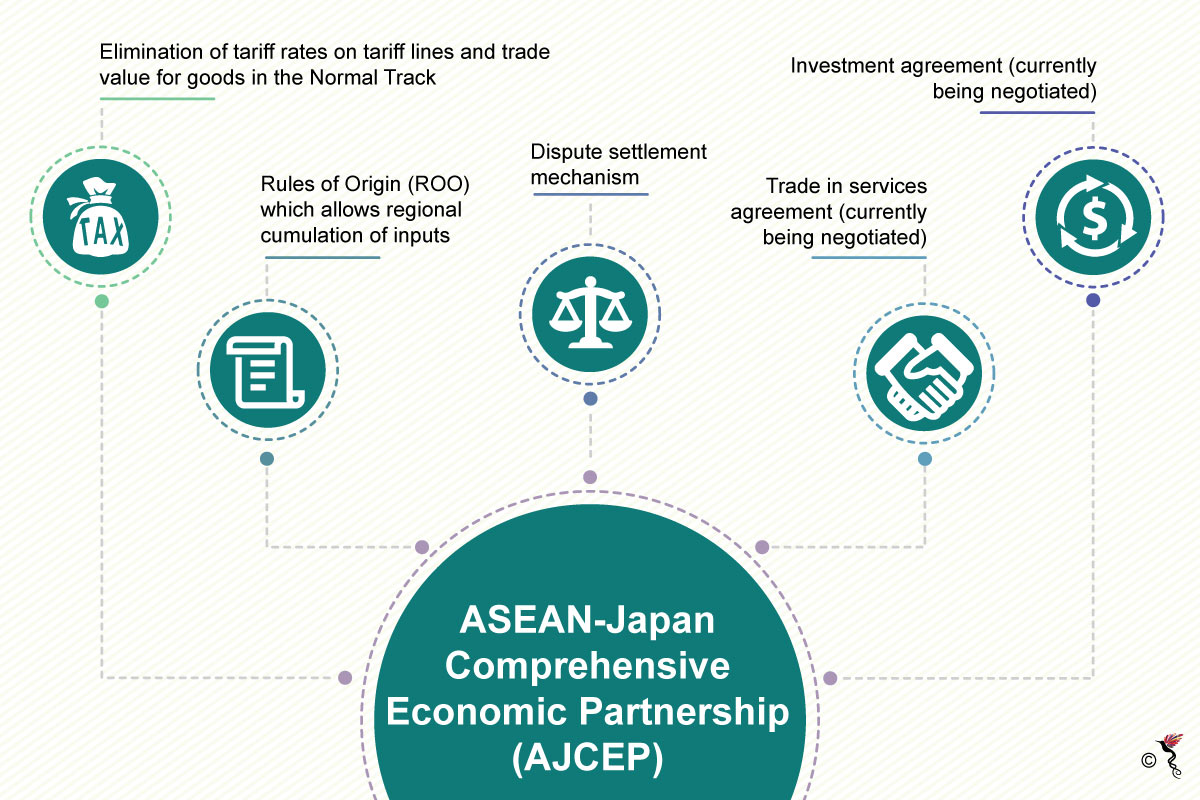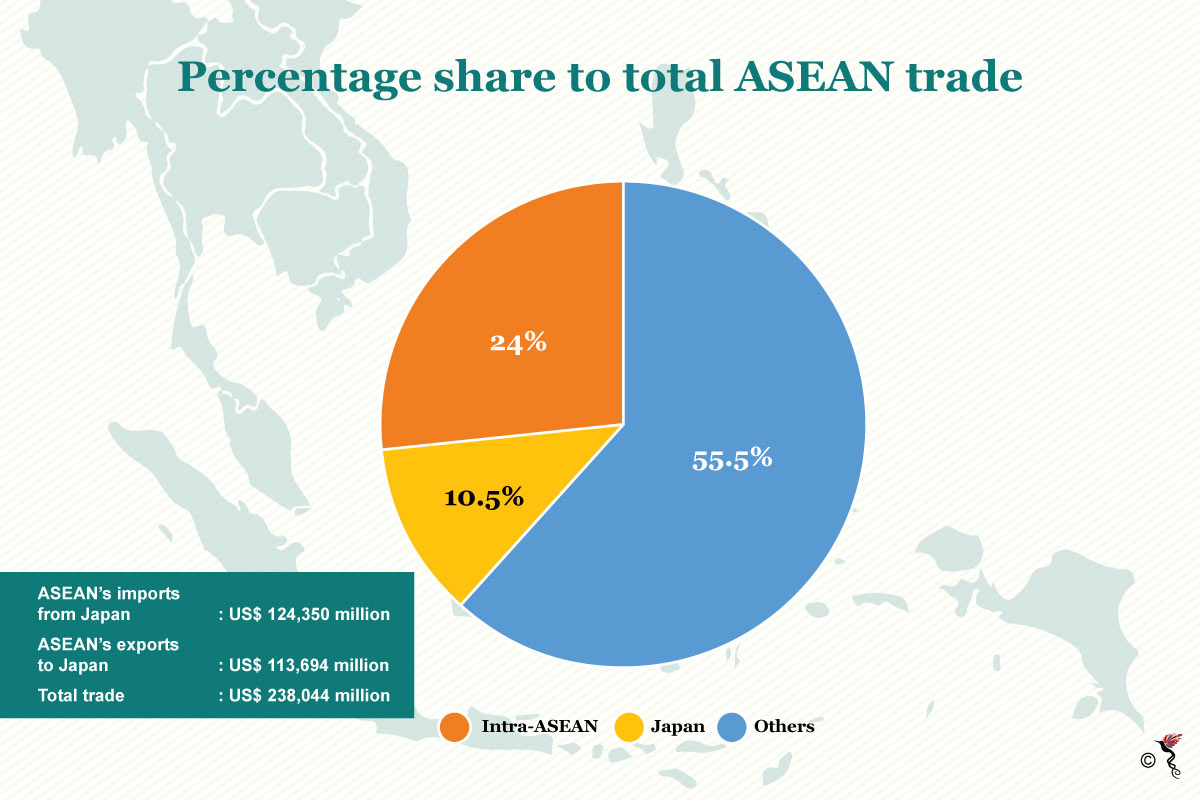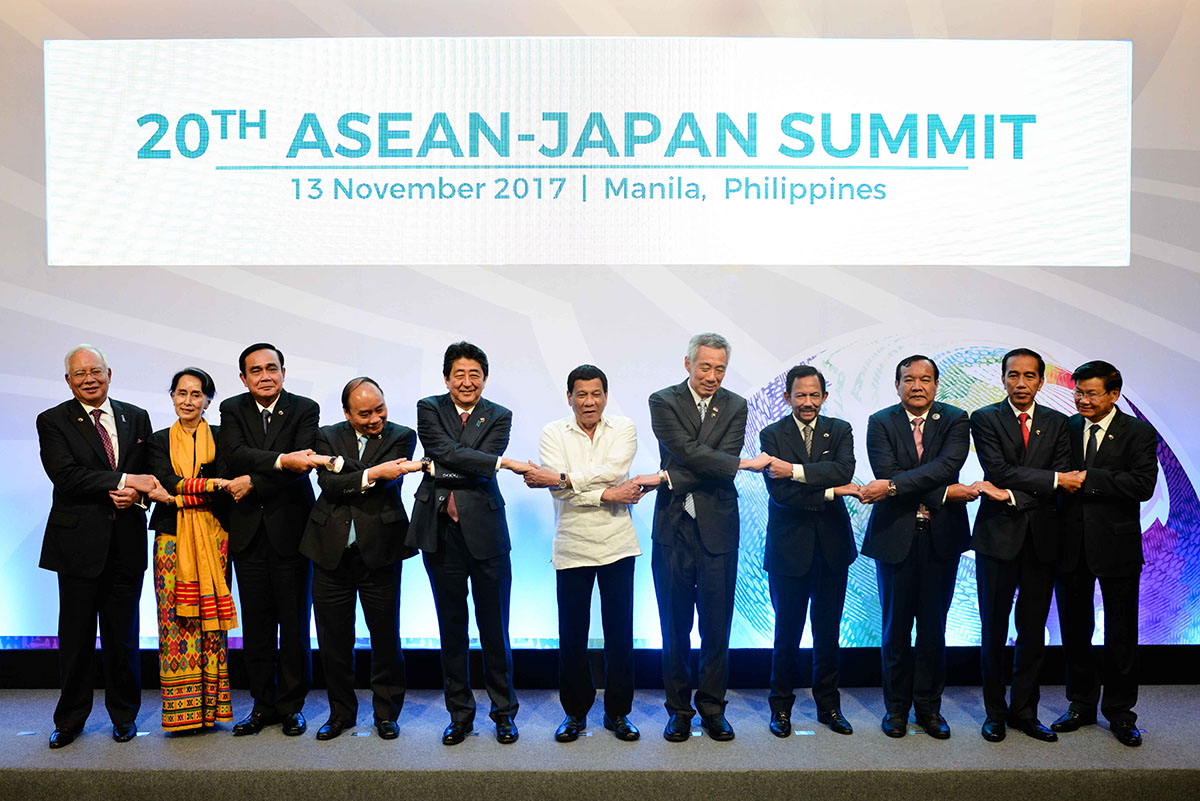Japan has been increasing its involvement with the Association of Southeast Asian Nations (ASEAN) in recent times. During the recently concluded ASEAN-Japan Summit in Manila, Japanese Prime Minister Shinzo Abe vowed to strengthen cooperation with ASEAN in areas including maritime security, trade and disaster relief.
History of ASEAN-Japan ties
Japan is one of ASEAN’s most important partner and relations between the two have improved drastically since the end of the Second World War.
Southeast Asian nations, previously suffered the brutality of Japanese occupation during the war and Japan sought to change the dynamics of its foreign involvement in the region in the 1970s under then Prime Minister, Fukuda Takeo.
The Fukuda doctrine, which outlined Japan’s approach to the region relied on three tenets – forging “heart to heart” ties with ASEAN, denouncing military belligerence and being an equal partner of ASEAN. ASEAN-Japan ties were formalised in March 1977 with the convening of the inaugural ASEAN-Japan forum.
Since then, ties between the both have made significant progress and in 2013, celebrated their 40th anniversary of dialogue relations at a commemorative summit in Tokyo.
ASEAN-Japan Comprehensive Economic Partnership
As far as trade deals go in the region, two dominate the headlines – the Regional Comprehensive Economic Partnership (RCEP) and the newly rebranded Comprehensive and Progressive Agreement for Trans-Pacific Partnership (CPTPP).
Japan is heavily invested in both the RCEP and CPTPP, even leading the negotiations of the latter after the US rescinded its commitment to an earlier version of the trade deal.
However, bilateral ties with the region is still key on Japan’s agenda and during the ASEAN Summit, Japan and ASEAN clinched an economic partnership covering aspects of trade and investment. The ASEAN-Japan Comprehensive Economic Partnership would make it easier for Japanese firms to invest in the ASEAN region and is expected to boost trade in financial and telecommunications services.

The ASEAN-Japan Comprehensive Economic Partnership (AJCEP)
Japan’s economic inroads in the region comes at the heels of China’s grandiose Belt Road Initiative (BRI). The BRI promises investments to the tune of billions of dollars, but experts argue that China’s economic agenda for the region will not likely hamper trade in goods and services between Japan and Southeast Asia.
According to Senior Fellow of the ISEAS-Yusuf Ishak Institute, Malcolm Cook, Japanese firms have had deep-rooted regional production chains that remain at the core of the ASEAN-Japan trading relationship.
“Japanese services firms are starting to focus more on foreign markets as Japan’s population ages and domestic consumption sags. Southeast Asia is a main focus of this outward push and Southeast Asian consumers are very active consumes of Japanese services,” he added.
However, Cook did note that the BRI has seen fewer Japanese firms winning contracts to public infrastructure projects in the region over the past three years.

ASEAN-Japan trade statistics
Mitigating regional security threats
In combatting security threats – whether traditional or non-traditional – the ASEAN-Japan relationship is vital especially in light of tensions in the Korean Peninsula and maritime disputes with China.
The need for mutual cooperation in terms of defence between Japan and ASEAN is underscored by distrust of major powers of each other. Here, ASEAN’s centrality has made it easier for the association to play “manager” and bring relevant parties to the talking table to advance a diplomatic solution.
“Some Southeast Asian states are already deepening security cooperation with Japan, particularly in terms of maritime domain awareness capabilities and coast guard development,” Cook stated.
At the recent East Asia Summit (EAS), Abe condemned North Korean belligerence and expressed his hopes for other major allies of the hermit state like China and Russia to play a greater role in reducing tensions. Japan also raised the issue of Chinese maritime claims and welcomed progress made by ASEAN and China vis-à-vis a code of conduct in the disputed waters of the South China Sea.
In matters of non-traditional security, Japan’s commitment to the region is best demonstrated by the Japan-ASEAN Integration Fund (JAIF) which has supported activities totalling to almost 650 million dollars. The most recent project is an intensive cybersecurity training program for ASEAN administrative staff which would enable them to effectively tackle and manage cyber threats.
Other areas of Japan’s cooperation through JAIF include disaster relief in collaboration with the ASEAN Coordinating Centre for Humanitarian Assistance on Disaster Management (AHA). Part of Japan’s initiatives included the construction and operation of Disaster Emergency Logistics System for ASEAN (DELSA) and the strengthening of disaster and emergency medicine systems.
With the unpredictability of recent geopolitical trends, the ASEAN-Japan relationship will now more than ever, be an important one. Given the need for ASEAN and Japan to carefully navigate the fickle diplomatic terrain ahead, suffice to say, both parties can mutually benefit from one another.
Recommended stories:
